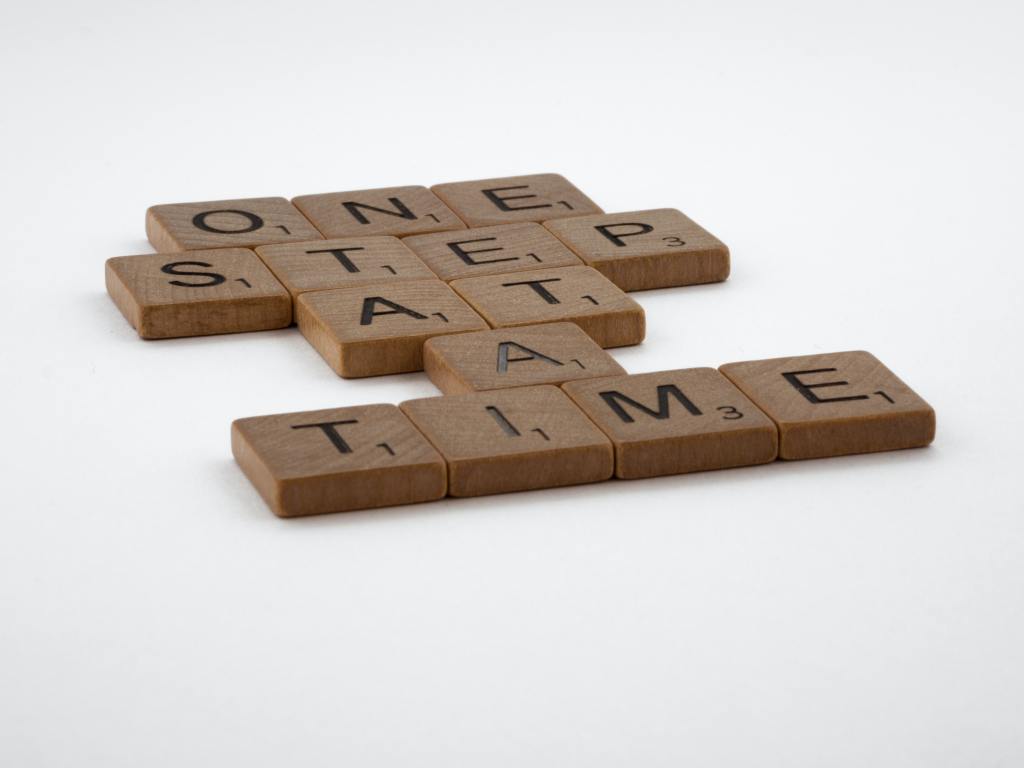
It’s normal to experience anxiety from time to time. We all do. Mums with anxiety read on for support.
For some, you might notice you feel anxious before starting a new job, having a difficult conversation or becoming a parent for the first time and not knowing what to expect, however these feelings quickly pass and don’t affect you too much.
For others, anxiety can be so debilitating that it affects your day to day life; from hating the school run because you feel so anxious around others, to not going for promotions at work because you don’t think you’d cope, to feelings of panic when your child has another meltdown.
If you experience anxiety regularly and have little understanding or control over it, over time it will likely impact on your self-esteem; how you see and think about yourself. It can influence how you treat yourself, stop you from feeling able to put your own needs first and get in the way of being the calm and compassionate parent you want to be.
If you’re a mum with anxiety, you may find parenting particularly challenging. As well as finding it difficult to make decisions, it’s common to be easily irritated by your children and feel like you’re not “a good enough” mum. This article is for you if you’re looking for some simple solutions that you can lean on at home and implement quickly to help you feel less anxious.

Using these tools will help you feel better; you’ll begin to navigate your day with more ease and confidence and these calm feelings will ripple out into the rest of your family, benefiting everyone.
(If you’re feeling unsure about CBT, then contact us or find a therapist you connect with. CBT works best alongside a therapist who can support you.)
I think I might be a mum with anxiety – what does it look like?
Anxiety is a normal, healthy signal designed to keep us safe from potential threats. It was designed for a time in history when the threats were commonly of a physical nature, for example, an attack by a wild animal.
In the modern world, we don’t face dangers like a bear entering our cave, but our body responds to psychological threats in the same way. When your child has a meltdown whilst you’re out and you think others are judging you or you feel out of control and powerless, the brain can interpret this in the same way it would an attack by a wild animal, causing you to feel anxious as a result.
This is problematic because although you aren’t in real danger, your mind and body responds as if you are, creating anxiety which can feel intense, confusing and overwhelming.

Symptoms of Anxiety
When you feel anxious you may experience symptoms such as sweating, an increased heart beat, fast breathing, loose bowels, feeling sick, difficulty concentrating and feeling irritable.
Eventually it can lead to poor sleep, poor eating habits, feeling like you can’t leave the house, low self-confidence and difficulties managing your relationships.
You might notice that you find it hard to stop and sit still and relax. Or it might be the opposite; that you procrastinate and find it hard to get going with the things you need to do.
You might notice that it’s hard to think clearly, that you worry something terrible will happen (although you can’t put your finger on what) or that you tend to jump to conclusions or catastrophise, all of which make you feel even more anxious.
You might also doubt yourself, finding it hard to make decisions and concluding that you’re a “bad mum” as a result.
| Is this you? Do you need support in managing anxiety, feeling more confident as a mum and better able to regulate your emotions? Then take our Anxiety Assessment. In 10 minutes you’ll understand where your anxiety comes from and how Conscious & Calm can support you and your children. Take the Anxiety Assessment |
How can this affect me as a mum?
If you’re in this state of anxiety often, you likely find parenting difficult.
Regardless of how you feel, raising children in the modern world is challenging; balancing the chaos, uncertainty, pressures and demands.
However, if you’re often feeling anxious, irritated and in a state of “fight or flight” whilst dealing with that, then it can feel unmanageable, leaving you feeling disconnected from yourself and your family, and operating in survival mode every day.
When you acknowledge that you need to support yourself every day, and that this needs to be a priority, you will quickly find you can manage the demands of parenting with confidence and feel the loving connection with your children you dreamed of.

How to use CBT tools at home as a mum with anxiety
CBT (Cognitive Behavioural Therapy) is a type of talking therapy. It helps us to recognise that the 4 areas; what we think, how we feel, physical symptoms and what we do are all interconnected.
When we feel anxious we often have negative thoughts and unhelpful behaviours that create a vicious cycle of more and more anxiety.
CBT helps you recognise this vicious cycle and where you’re stuck, and understand what you need to do to break out of it.
When you make a change in any of the 4 areas – you’ll start to notice changes in the others. We can’t directly change how we feel, but we can change how we think about things and what we do in order to influence how we feel – and this is the focus of CBT.
The tools below are recommended strategies used throughout a course of CBT. If you need long-lasting support then contact us and we can chat about the best ways to help you.
5 proven and easy CBT tools you can use at home
- Be aware of what you’re saying to yourself
Do you have thoughts like “I’m a bad mum”, “others are judging me” or “I’m going to mess my kids up”?
These negative thoughts create anxiety and are likely biased and unfair. They’re also discounting the positives about your life.
Catch yourself when one of these negative thoughts arises and ask yourself “is it true?” Make sure your thoughts are balanced and fair and you’ll go through your day feeling calm and confident.

2. Create a worry jar
If you have a tendency to worry – about anything and everything – then create a worry jar.
Whenever a worry crops up, write it down and pop it into your worry jar. At a designated ‘worry time’, sit down and allow yourself to go through the worry jar and think about your worries for an allocated time (around 10-15 minutes). This will help you to feel more in control of whether you worry or not so you can manage how anxious you feel.
3. Have a favourite breathing exercise
Learn some simple breathing exercises to have in your anxiety toolbelt.
When you experience the urge to ‘fight or flight’, reach into your kit for a breathing exercise that will help your mind and body realise that it’s safe helping you feel calmer and more relaxed.
A simple breathing exercise:
Inhale for a count of 4
Exhale for a count of 6
Repeat between 5-10 times or until you feel yourself relaxed.
4. Manage your day in small steps
If your anxiety is causing you to avoid certain tasks, then break them down into smaller steps.
For example, if the thought of organising the birthday party feels too much and you find yourself ignoring it altogether, writing a list of all the smaller tasks that need to be done and doing only one at a time can make it feel less overwhelming.

5. Focus on what you can control
Remember, life can be unpredictable, and you can’t control everything, especially when it comes to other people.
For example, rather than worrying that your children aren’t eating as much as you’d like. So, focus on preparing healthy food options (something you can control) rather than focusing on how much they eat (something they control).
This will help you stay present and more in control and ultimately help you feel calmer in the moment.
Further Support For Mums With Anxiety
| Master Your Anxiety Workshop If you don’t feel you have the time to work with a therapist then this is the workshop for you. Learn simple, proven strategies to help you feel less anxious and support your children with their anxiety. Get ready to relax! |
We hope this article has given you some useful tools to try at home, to help reduce your anxiety and feel calmer, better, happier and less stressed.
If you feel like your anxiety is too hard to manage alone, speak to your GP or a therapist. They will support you on this healing journey.
At Conscious & Calm we have lots of resources to help parents with their emotional wellbeing. And, in doing so, support their children to do the same. Take a look at what’s on offer across the rest of our website.
| Is this you? Do you need support in managing anxiety, feeling more confident as a mum and better able to regulate your emotions? Then take our Anxiety Assessment. In 10 minutes you’ll understand where your anxiety comes from and how Conscious & Calm can support you and your children. Take the Anxiety Assessment |

